 Over the past 6-7 years, more and more athletes that I work use a smart trainer for their indoor cycling, and some of the new athletes that sign on to work with me only have experience with a smart trainer and ERG mode on for indoor workouts. So is this a good thing or bad thing or is it neutral? Like most things, this is not a binary decision of “good” or “bad”, but a continuum. My initial thought was that there’s more bad than good, but I wanted to find out more.
2 Comments
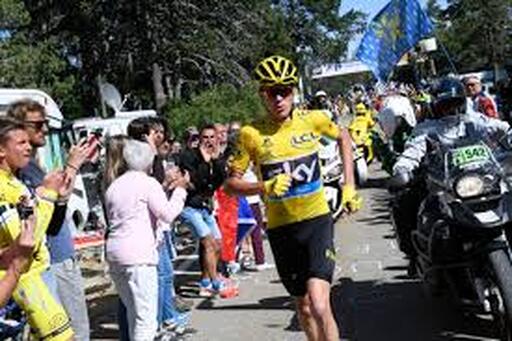 “I just rode my bike 4 hours last weekend, so of course I can go for 5 miles on my first run of the year”, said the cyclist who is then hobbling around for the next week. Many cyclists look to add other activities into their weeks during the “off” season, and running is a very common sport to incorporate. Yes, we have the heart and lungs to complete almost any endurance exercise, but, without taking it slowly and considering past running experience, running can be painful or downright detrimental. However, if done right, it doesn’t need to be painful, but is it helpful? 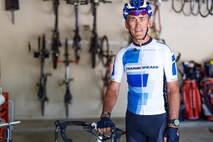 The Godfather of endurance coaching and author of the Training Bibles, Joe Friel, recently wrote a whole book, called Ride Inside, on indoor training. Indoor training has become increasingly popular, and with the interactive platforms such as Zwift and RGT, and the more "realistic" equipment available, riders are logging more hours indoors. Some athletes are actually dedicated and sponsored indoor racers! Being forced inside during 2020 certainly added fuel to this fire. Riding indoors has it's own set of challenges. Last week, I wrote about Cardiovascular Drift, which is not uncommon during indoor training due to increasing body temperature and dehydration. There are steps you can take to help avoid this as well as more considerations about your setup. Here's a great article by Joe Friel that was posted on the TrainingPeaks Blog about setting up your indoor training area: Making Your Indoor Cycling Setup Work for You https://www.trainingpeaks.com/blog/making-your-indoor-cycling-setup-work-for-you/ If you don't have a dedicated smart bike, if you have a second bike that you can leave on your trainer, I find this eliminates one of the barriers that often exists for athletes. Little things like that can really help to make sure you get on your bike for your workout. It doesn't need to be fancy, but with a little thought, a couple of box fans, a little entertainment, and plenty of fluids, you can have a much more enjoyable time. To sign up for my remote indoor training classes, click here: Remote Indoor Training Classes If you want to get more out of your indoor AND outdoor training, I offer customized training programs that will upload to all popular training platforms and head units. If you're interested in setting yourself up for your best year ever, drop me a line. Email Coach Brian Coach Brian 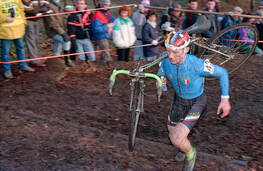 Training with specificity is important, especially as an athlete gets closer to their event. Once the aerobic engine has been built from months or more of generalized training, it’s time to adapt the training to meet the specific needs of the event. Training with specificity is not limited to just the type of intervals that an athlete would perform, but also the terrain that they will encounter and necessary skills. For example, if an athlete planning on a gravel event with very rough terrain and plenty of short, punchy climbs, these would be two specific areas to target during training. While training with specificity is very important, it’s also important to not spend unnecessary time training for discipline specific demands that will not be encountered during the event(s). Huh? Simply said, don’t spend time training something that exists in the sport but that you won’t encounter. Cyclocross is a very good subject of this statement. ‘Cross is a very unique sport in that there is terrain in some ‘cross races that you might not ever see in any of your other events. Examples of such terrain include sand, snow, or wood chips. Likewise, there is often at least one point on the course where racers will be forced to dismount, run with their bike, and then remount. While this may happen in a mountain bike race or even some gnarly gravel events, it’s not a “mandatory” part of mountain bike course construction and layout. A specific example: For many years I held a weekly Tuesday cyclocross training practice where we did all sorts of drills and had some short races at the end. As the years progressed, we started spending more time practicing shouldering and then running with our bikes. While this is a good skill to have in ‘cross, as I reflected on my races, not once did I need to shoulder my bike. It was a dry year and the nature of our courses did not involve any stairs or long and steep runups where shouldering would have been advantageous. The only dismount during the races was for the barriers, and most riders were “suitcasing” their bikes with a top tube grab and carry. This was actually the same for several years in a row. Was this a huge loss of time? No, but probably a skill that we didn’t need to continue to sharpen week after week. Another example from ‘cross would be riding through sand. Again, a great skill to have and can really develop some amazing bike handling. There are also some similarities between riding in loose sand with mud and snow. BUT, if none of your races will include a sandpit, then perhaps spending time and energy seeking out sand to practice in is not the best use of these precious resources. More obvious examples can also come from the duration of the events. If an athlete is targeting “shorter” races such as criteriums, time trials, cyclocross, UCI XC mountain biking, and even sprint triathlons, riding for 5+ hours during the height of the season can be downright counterproductive. This can be a hard pill to swallow for those out there who, like me, love to ride their bikes. And I’m not suggesting that there is not value in long, low intensity rides during the base period. However, as you get closer to your events, this type of riding will likely not benefit your performance. If you're into podcasts, this is a super listen: https://www.fasttalklabs.com/fast-talk/jim-miller-usa-cycling-should-you-build-the-best-engine-or-focus-on-specificity/ And here are some great articles to help us all think about the specific demands of our events: https://www.trainingpeaks.com/blog/training-with-specificity/ https://pezcyclingnews.com/toolbox/intervals-part-4-race-specificity/ I encourage you to train with specificity, and if you have questions or need help with this, I’m ready to lend a hand! Cheers, Coach Brian 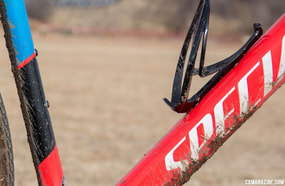 Drinking during a cyclocross race IS NOT BANNED. I've found this to be a common misperception. I believe the source of the confusion comes from the ban of hand ups (taking a bottle from a helper on the side of the course) except for when "feeding" is permitted. The picture above is Christopher Blevins' bike from the 2018 U23 National Championships. Didn't slow him down any! When cyclocross was "normally" held in the colder months, this was rarely a discussion or an issue. But now that the mercury may hit 90+ degrees during an extremely intense type of bike rassin', there has certainly been many a conversation about this topic. While there's certainly different schools of thought if hydration is necessary during an event that is 60 minutes or less, some studies show it is beneficial. Additionally, it can be real mental boost to just get some cold water in your mouth even if you spit it out. And then there's the whole notion of the carbohydrate rinse but we'll let that lay for another time. Many purists may scoff at the idea of having a bottle cage on your 'cross bike. However, if you don't need to shoulder your bike, or if your frame so small that you can't shoulder it, it is certainly permissible to leave a cage on and race with a bottle. You can also get grab a bike out of the pit that has a cage and a bottle, and a helper may certainly put a new, cold bottle on your bike in the pit. Remember that the bottle doesn't need to be full. If your race is one of the shorter ones, maybe you start with half of a bottle and even toss it to your helpers during the race. With this all said, coming into the race properly hydrated is way more important that any sort of hydrating you could do during the event. But that doesn't mean you shouldn't take a drink if you think it would be beneficial. Try it out during a hot practice session and see what you think. I think the biggest take-aways are that drinking during a 'cross race is permitted, and it's OK to to have a bottle cage on your bike. Check out this article from VeloNews: https://www.velonews.com/news/cyclocross/yes-you-can-take-a-drink-while-racing-cyclocross/ Until next time, drink your water and rest as hard as you train! Cheers, Coach Brian |
Categories
All
Coach B.L.Coach B.L. is the head coach at BJL Coaching and an avid racer and cycling enthusiast himself. Archives
July 2024
|
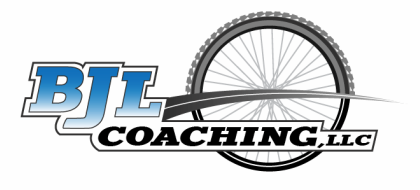
 RSS Feed
RSS Feed